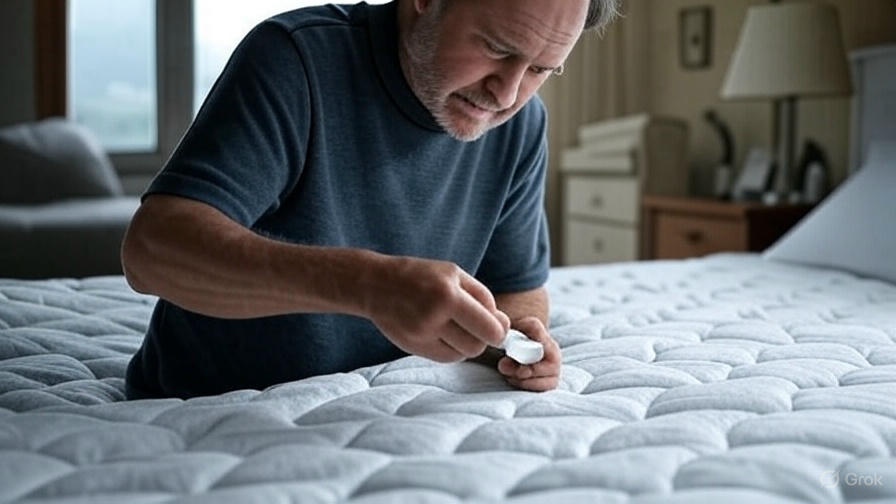
Introduction
Bed bugs are a growing problem in London, infesting homes, flats, and hotels, and causing distress with their itchy bites. With countless home remedies shared online, one question frequently arises: does white vinegar kill bed bugs? In this article, we’ll explore the effectiveness of white vinegar as a bed bug treatment, test its limitations, and highlight proven solutions for London residents.
The Bed Bug Challenge in London
Bed bugs are small, nocturnal insects that feed on human blood, hiding in mattresses, clothing, furniture, and even wall cracks. Their ability to survive for months without feeding and their rapid reproduction make them a tough opponent. Many people turn to household items like white vinegar in hopes of a quick, affordable fix, but does it really work?
Why Home Remedies Like White Vinegar Are Popular
White vinegar is a staple in many households, valued for its cleaning and deodorising properties. Its acetic acid content gives it a reputation as a natural pest deterrent, leading some to believe it can tackle bed bugs. The appeal of a cheap, readily available solution is strong, especially in a busy city like London. However, popularity doesn’t always mean effectiveness.
For health-related advice on dealing with bed bug bites, the NHS bed bug guide provides useful tips.
Does White Vinegar Kill Bed Bugs?
The simple answer is no—white vinegar does not reliably kill bed bugs. While it may have some effect in specific scenarios, it’s not a robust solution for eliminating an infestation. Let’s break down why white vinegar falls short and what it can (and can’t) do.
How White Vinegar Affects Bed Bugs
White vinegar contains acetic acid, which can be toxic to some insects in high concentrations. When sprayed directly on bed bugs, it may kill a small number on contact by disrupting their nervous system or damaging their exoskeleton. However, there are significant limitations:
- Limited Lethality: Vinegar’s acidity is not strong enough to kill bed bugs consistently, especially eggs or those hidden in crevices.
- No Residual Effect: Unlike professional insecticides, vinegar doesn’t leave a lasting barrier to prevent bed bugs from returning.
- Inability to Penetrate Hiding Spots: Bed bugs hide in deep seams, mattress layers, and furniture, where vinegar sprays cannot reach effectively.
Risks of Relying on White Vinegar
Using white vinegar as your primary bed bug treatment can delay effective control, allowing the infestation to worsen. It may also damage fabrics or surfaces if overused. Instead of relying on unproven remedies, consider proven methods. For expert pest control solutions, visit pest.co.uk for professional advice.
Tested Home Remedies: What Works Better?
While white vinegar isn’t effective, other methods have been tested and proven to combat bed bugs. Here are some alternatives that offer better results:
Heat-Based Treatments
Heat is a bed bug’s worst enemy. Temperatures above 48°C (118°F) for a few minutes or 60°C (140°F) instantly kill bed bugs and their eggs. Effective heat-based methods include:
- Tumble Drying: Wash infested clothes and bedding at 60°C and dry on a high-heat setting for at least 30 minutes.
- Steaming: Use a professional-grade steam cleaner (reaching 60°C) to treat mattresses, upholstery, and carpets.
- Whole-Room Heat Treatment: Professionals can heat an entire room to lethal temperatures, ensuring all bed bugs are eliminated.
Vacuuming and Physical Removal
Regular vacuuming of mattresses, furniture, and floors can remove some bed bugs and eggs. Seal and dispose of the vacuum bag immediately to prevent re-infestation.
Professional Insecticides
Approved chemical treatments, applied by professionals, can target bed bugs effectively, often in combination with heat treatments for maximum impact.
For London-specific solutions, pest.co.uk’s bed bug treatment in London offers expert heat and chemical treatments tailored to urban environments.
Preventing Bed Bug Re-Infestation
After treating an infestation, preventing bed bugs from returning is essential. Here are some practical steps:
- Regular Inspections: Check beds, furniture, and clothing for signs of bed bugs, such as dark spots or live insects.
- Mattress Encasements: Use bed bug-proof covers to trap any remaining pests and prevent new ones from settling.
- Seal Hiding Spots: Close gaps in walls, skirting boards, and furniture to reduce hiding places.
- Inspect Second-Hand Items: Carefully check used furniture or clothing before bringing them into your home.
Why Professional Help Is Crucial in London
While DIY methods like vacuuming or steaming can help manage small infestations, they often fall short for larger problems. London’s dense urban setting makes bed bugs a widespread issue, and a single untreated item can spark a new outbreak. At ThermoPest Bed Bug Treatment London, we specialise in advanced heat-based treatments that deliver fast, lasting results.
Our team uses state-of-the-art thermal technology to eradicate bed bugs at every life stage, ensuring your home or business is pest-free. From minor infestations to severe cases, ThermoPest provides customised solutions for London residents.
Conclusion
So, does white vinegar kill bed bugs? Unfortunately, it’s not an effective solution. While it may kill a few bed bugs on contact, it lacks the power to eliminate an infestation or prevent re-infestation. Instead, focus on proven methods like heat treatments, vacuuming, and professional pest control. For Londoners battling bed bugs, ThermoPest offers the expertise and technology to restore peace to your home.
Don’t let bed bugs take over. Contact ThermoPest Bed Bug Treatment London today for effective, heat-based solutions tailored to your needs.

